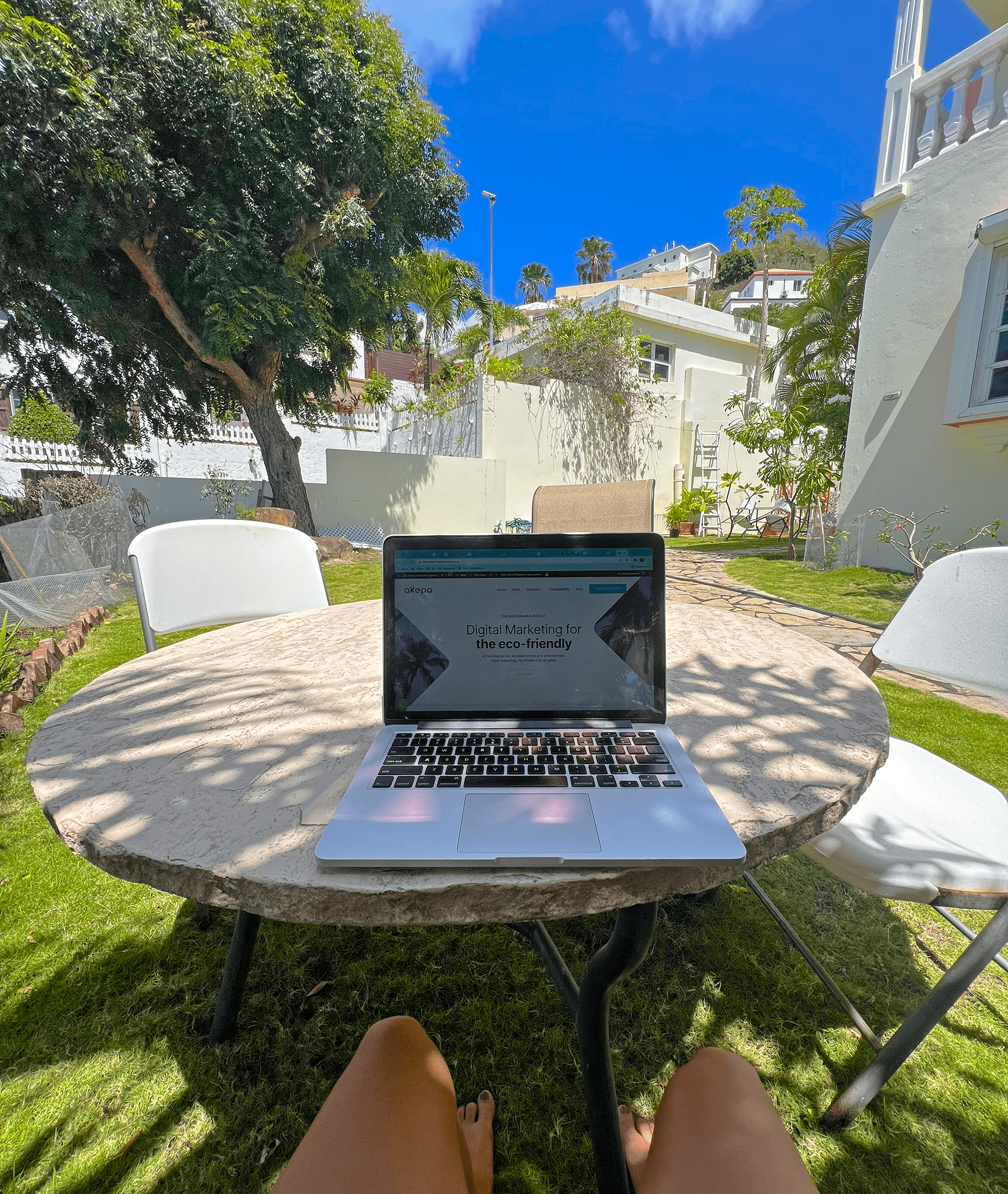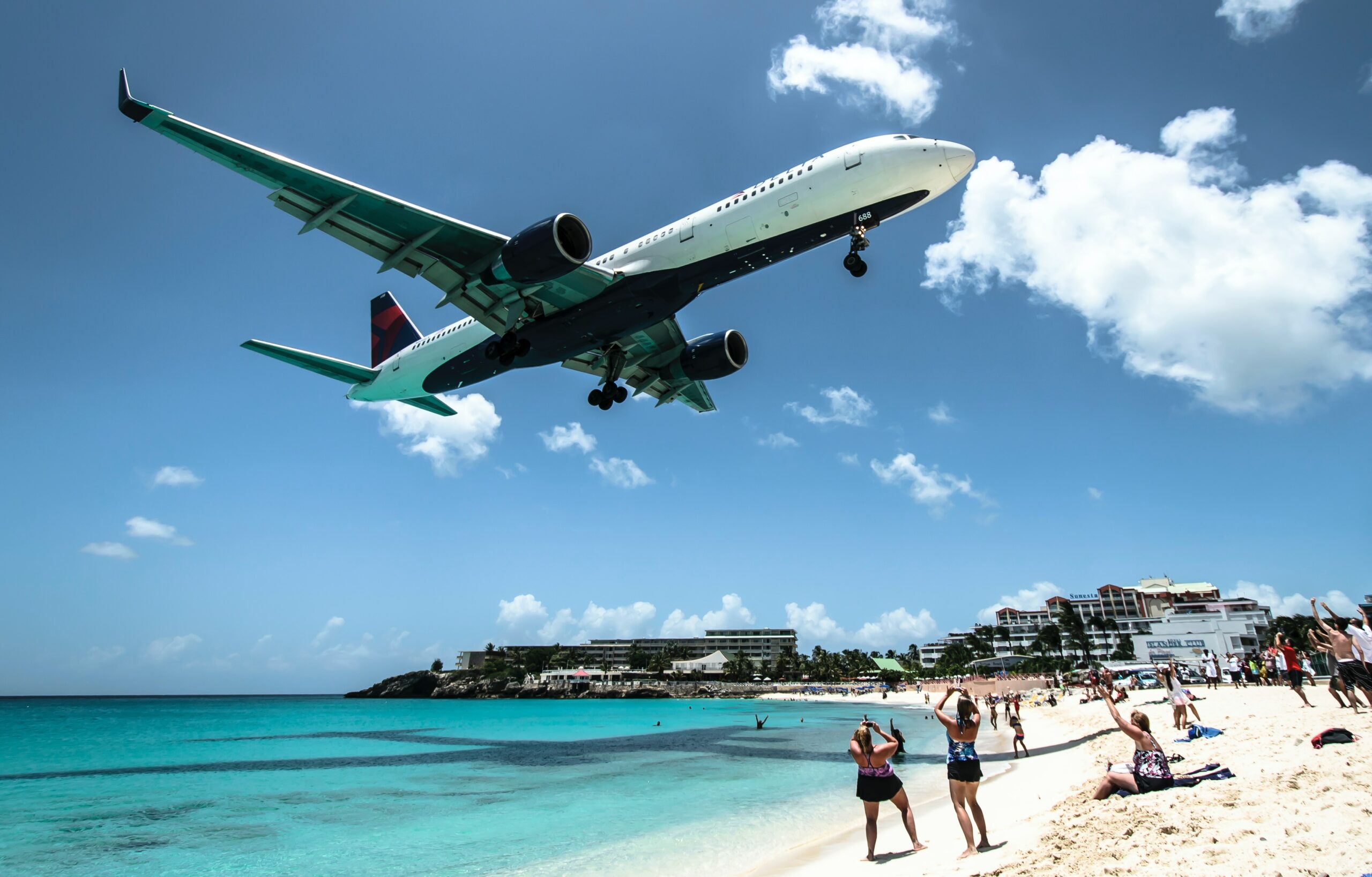At Akepa, we embrace the alternative style, the remote route, and partner with people from all over. Here’s Akepa’s Roma Dhanani giving her perspective on remote working from St. Martin, the Caribbean. It’s the third in a series of posts from our team on remote work in different parts of the world.
Working from home is way more motivating when you’re living on a tropical paradise island. Ocean views, salty breeze, birds chirping, warm sun kissing your skin… they all make responding to work requests and tasks seem enticing.
I mean… unless you actually enjoy suffering through the terrible cold(?!). That, I was not made for. If you’re like me, then maybe you’ve heard of the many Caribbean islands that have started to offer remote work visas. For some, this may feel like a dream. Finishing off your work day to head off to the beach a 5 minute drive away (or for some, a step right out of their apartment), or to go have sunset drinks and food with friends. This is what they mean when they waffle about work-life balance, which brings us to our first advantage of remote working in the Caribbean.

Work from home paradise
For those who can manage to find a good work-life balance (which, may I say, can be difficult if you’re surrounded by tropical temperatures and beach parties all year round), working from an island in the Caribbean can be very rewarding. I grew up on St. Martin and am remote working here at the time of writing this article, and I can tell you that this life is hard to beat. The Caribbean is full of incredible historical stories that have formed people’s cultures, from the rebellion during days of slavery to becoming a melting pot of ethnicities and diversity, to the now unique blend of customs and traditions. The people in the Caribbean are also generally lively, friendly, and outgoing – making it almost effortless to have an active social life.
View this post on Instagram
So if you can find a way to stay focused, get your job done, and maximize your free time to enjoy life here, you’re going to have a hell of a time. Every weekend is a vacation without even catching a flight.
But of course, as with remote work anywhere else in the world, there are downsides, too. I know, I know – you must be thinking I’m crazy: “how could there be ANY downfalls of remote working in paradise?!” Well, there are but they may or may not outweigh the benefits of living in the tropics, depending on the person.
You might just spend all your savings
The Caribbean can be expensive. Some islands more, some less. The average rent on St. Martin for a decent apartment for one person would be around $1,000, and we haven’t even started to talk about the cost of groceries which many claim to be expensive in comparison to European standards. On the other hand, food and drinks at certain restaurants can be very cheap for its value. Regardless of which island you choose, if you plan smart, you’ll be good. Although personally, I have a hard time controlling my spendings as I want to enjoy my free time rather lavishly on boats, hopping to different islands (note that traveling within the Caribbean can be costly), having drinks at nice places, and exploring new activities. But to each their own!
Lack of infrastructure & establishment
It can be hard to work when electricity goes off on a regular basis, to say the least. Growing up, this was normal on St. Martin. Internet issues were always a problem, too – even when electricity hadn’t gone out, the internet would just work sluggishly. Not to say this problem exists everywhere on every island but I definitely wouldn’t rely on the Caribbean to supply the fastest internet in the world.
And, in general, probably because of our way of life and very chill mentality, things also tend to work slower in the Caribbean – compared to the Netherlands for example, where I lived for 5 years after moving out of the island.
Remember the tricky time difference!
Some might be working for a company in the same time zone, but if you aren’t, like in my case where I adjusted to working to Spanish times, work may start at 4 or 5 am. I have friends who’ve had to regularly wake up at 3:30 AM just to have a relaxed morning before work. For some, that can be a breeze, but for late risers, it can take a bit of getting used to. The upside to it, though, is finishing early and having the rest of the day to yourself! Luckily, remote work nowadays can be much more flexible if you’ve got a modern boss who prioritizes work outcome over strict working hours (the way to go!).

Sounds a bit convincing, despite the cons?
If reading this made you crave remote work in the Caribbean even a little, then look into it! Without hyping it up too much, your life will probably change for the better. The remote work visa that some islands like Barbados offer is a great option to consider. But you may want to go to an island that doesn’t (yet) offer the remote work program, or maybe you don’t want to/can’t apply for the programs for whatever reason.
Don’t worry – you can still go. Here’s some good news: if you carry a European or American passport (and in some other cases), you’ll have no problem living in the Caribbean for at least 90 days (same goes for a tourist visa, if needed), and in some cases 180. Anyway, maybe 3-6 months is more than enough for you and, if not, alternatively you can hop from island to island every few months!
Interested in learning more about remote work in some of the world’s other places? Have a look at some of our other guides below:



Leave a Reply